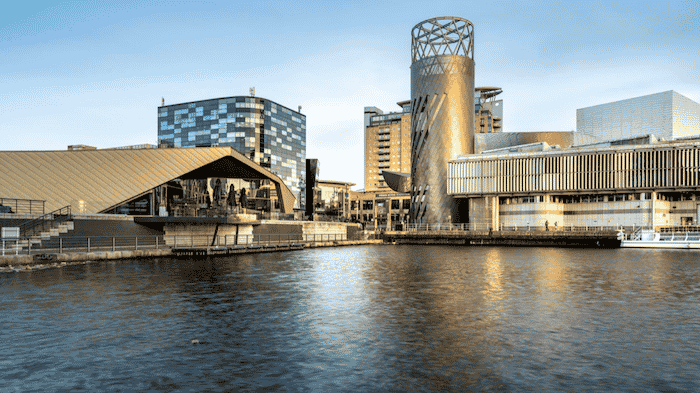Night and Day Cafe: the Northern Quarter music mecca which has survived 27 tumultuous years
- Written by Susan Griffin
- Last updated 6 years ago
- City of Manchester, Music, Nightlife, People
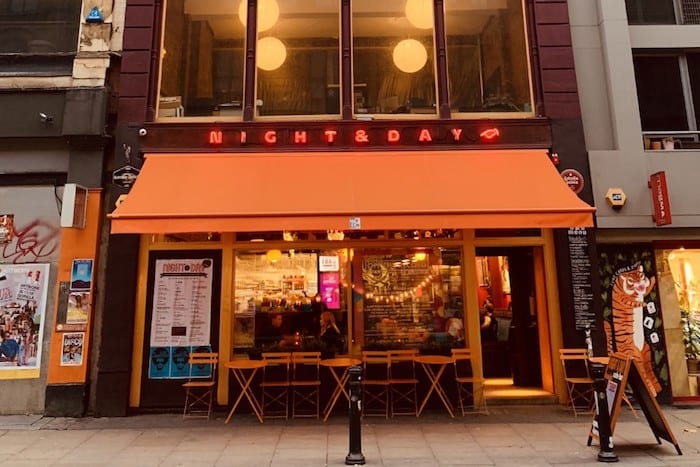
With countless businesses cropping up across the Northern Quarter, it’s important to take a moment to celebrate the founding fathers of the area; the venues created by people who had the foresight to recognise its potential when others couldn’t.
One of these originals is Night and Day Café, a mecca for new music which has survived tumultuous times and is still standing, 27 years on.
Jay Taylor, who’s worked at the site since the early 2000s, shares his thoughts on the venue’s history, legacy, and the influence of his close friend and the founder of Night and Day Café, Jan Oldenburg, who passed away in October.
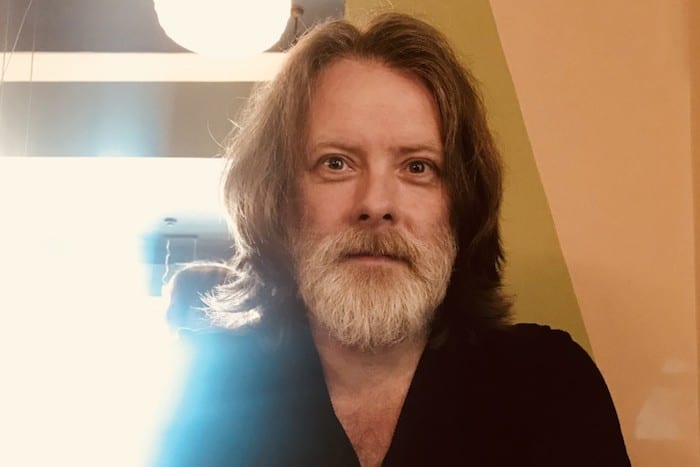
What can you tell us about the origins of Night and Day?
When Jan got the lease on the building, it was a chip shop, but he had aspirations for it to be something else. He ran it as a chippy while formulating plans and getting money. It wasn’t one of the businesses where a team of investors came in and bought a building and did it up. It was one person with some bravery, smart ideas, vision and artistic and creative sensibilities wanting to do something in a neighbourhood which was quite sketchy. It did some jazz and slowly exposed more band-orientated shows and started selling booze, so it slowly morphed into the musical venue it is today.
How would you describe the location back then?
The Oldham Street of 1991 was a very different beast to the Oldham Street of 2018. It was largely boarded up, it was frightening, quite unwelcoming. It was a grim old street and so it was an act of incredible smarts and bravery in pinpointing this building and this neighbourhood. Looking at it now, it seems obvious. Central Manchester, halfway between the two train stations, it makes absolute sense if you look at it on a map. And there’s a lot to love about the building. It’s a beautiful, long room. It’s got some gorgeous Victorian architecture, the front of the building looks amazing, it’s a knockout. I could see how someone could fall in love with it.
What role do you think the venue’s played in regenerating the area?
It feels like the regeneration of the area, in terms of setting a real tone, can be laid at the feet of three businesses – Dry Bar, which is no longer next door, Afflecks Palace on the corner, and here. It certainly wasn’t developers. Those people were very slow to catch on. The people who made a difference to the neighbourhood were the people with artistic and creative and cultural aspirations. Those brick builders came a lot later, as they generally do. They usually have to see ground that’s broken by someone who’s braver and more interesting than them, and then it’s quite easy to follow someone else’s ideas.
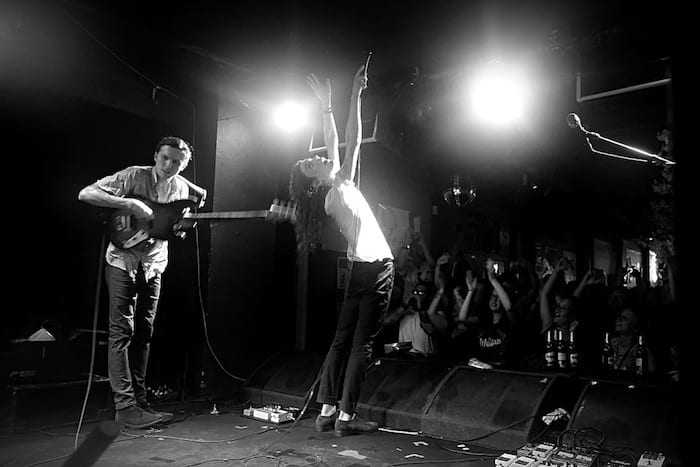
Do you think the crowd has changed over the years?
Not so much because what it’s done historically is still the same. It’s a venue that looks forward a lot and so we tend not to see heritage artists. What we tend to see are new artists at the beginning of their career and that’s always been the case. I take diversity within the audience that comes to the venue quite seriously because you don’t want to rely on the same people coming to the businesses every day. And I like the diary to be schizophrenic because it keeps it interesting for us lot. I also have political aspirations for it to be more than four skinny, white men with guitars every night. Sometimes that can be a transcendent, wonderful thing but I feel it can be more. In terms of people who engage with that, they tend to be people who are excited about new music.
Does Manchester’s musical heritage play a part in its success?
While I understand the importance of that Manchester musical heritage, I’d hate the idea that it would weigh the city down to the point where we weren’t looking forward. The last thing I’d want is for Manchester to become like a heritage museum for Oasis fans. It’s not that interesting looking at a Union Jack guitar in a glass cage. And it doesn’t really have a bearing on here because we’re looking forward. I’m sometimes asked what great shows have been through the venue but I’d rather talk about tonight’s show or tomorrow’s show because that’s where I focus my attention. I don’t really care about things that have taken place 10 years ago. I probably cared more about them the day before, and the night of, the show.
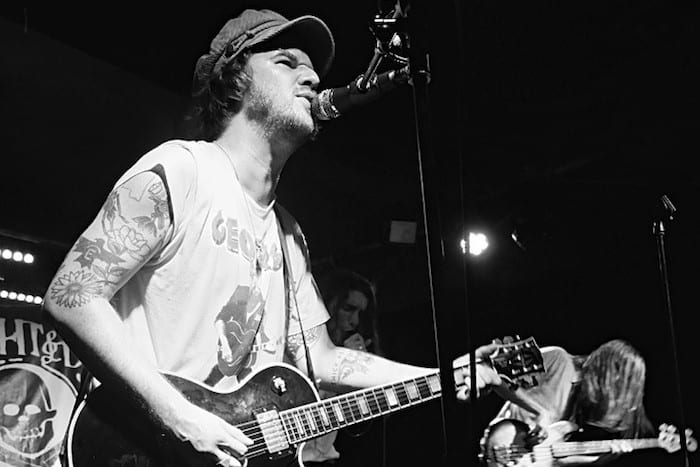
Has the inside of the venue changed much?
Some cosmetic bits and pieces but it’s always been a big, long room with a big stage at the end. The thing I love about the venue, and subjectivity be damned, it’s my favourite venue on earth, it’s everything I want a great rock and roll venue to be. It’s interesting, colourful, there’s loads of stuff to look at on the walls. And then at night, it all goes dark and all the clutter in the building, all the tiny bits of its 27-year history vanishes, and we look at that wonderful thing up there [the stage]. Do you know what, we won bar of the year once and I quite like the award’s hidden behind some snow globes covered in dust.
What did Jan’s passing mean to the community?
I can only speak for myself, but it was one of the most important relationships of my life. He was so dynamic, his drive, integrity. He lived upstairs and was always around. This was his life’s work and his spirit is everywhere. His vision was so clear that now, if I’ve got a problem, I can hear what he’d say, and now he’d be telling me to get back to work!
What are the plans for the future?
The plan’s to continue filling the diary with great stuff. All I really want is to sit innocuously at that bar and look at a room with a bunch of people having a really great time and something sensational on stage and that’s us being everything we’re supposed to be. That’s the goal every night, to do something that moves people, so they leave in an altered state.
- This article was last updated 6 years ago.
- It was first published on 17 December 2018 and is subject to be updated from time to time. Please refresh or return to see the latest version.
Did we miss something? Let us know: press@ilovemanchester.com
Want to be the first to receive all the latest news stories, what’s on and events from the heart of Manchester? Sign up here.
Manchester is a successful city, but many people suffer. I Love Manchester helps raise awareness and funds to help improve the lives and prospects of people across Greater Manchester – and we can’t do it without your help. So please support us with what you can so we can continue to spread the love. Thank you in advance!
An email you’ll love. Subscribe to our newsletter to get the latest news stories delivered direct to your inbox.
Got a story worth sharing?
What’s the story? We are all ears when it comes to positive news and inspiring stories. You can send story ideas to press@ilovemanchester.com
While we can’t guarantee to publish everything, we will always consider any enquiry or idea that promotes:
- Independent new openings
- Human interest
- Not-for-profit organisations
- Community Interest Companies (CiCs) and projects
- Charities and charitable initiatives
- Affordability and offers saving people over 20%
For anything else, don’t hesitate to get in touch with us about advertorials (from £350+VAT) and advertising opportunities: advertise@ilovemanchester.com

Now you can own a piece of TV history and support a much loved NHS Charity

The welcoming Manchester community where board games build friendships

Everything you need to know about the St George’s Day Parade 2025

Best bars and pubs to watch the football and live sport in Manchester

Discotheque Royale vs Piccadilly 21s: which was your favourite 90s Manchester club?
